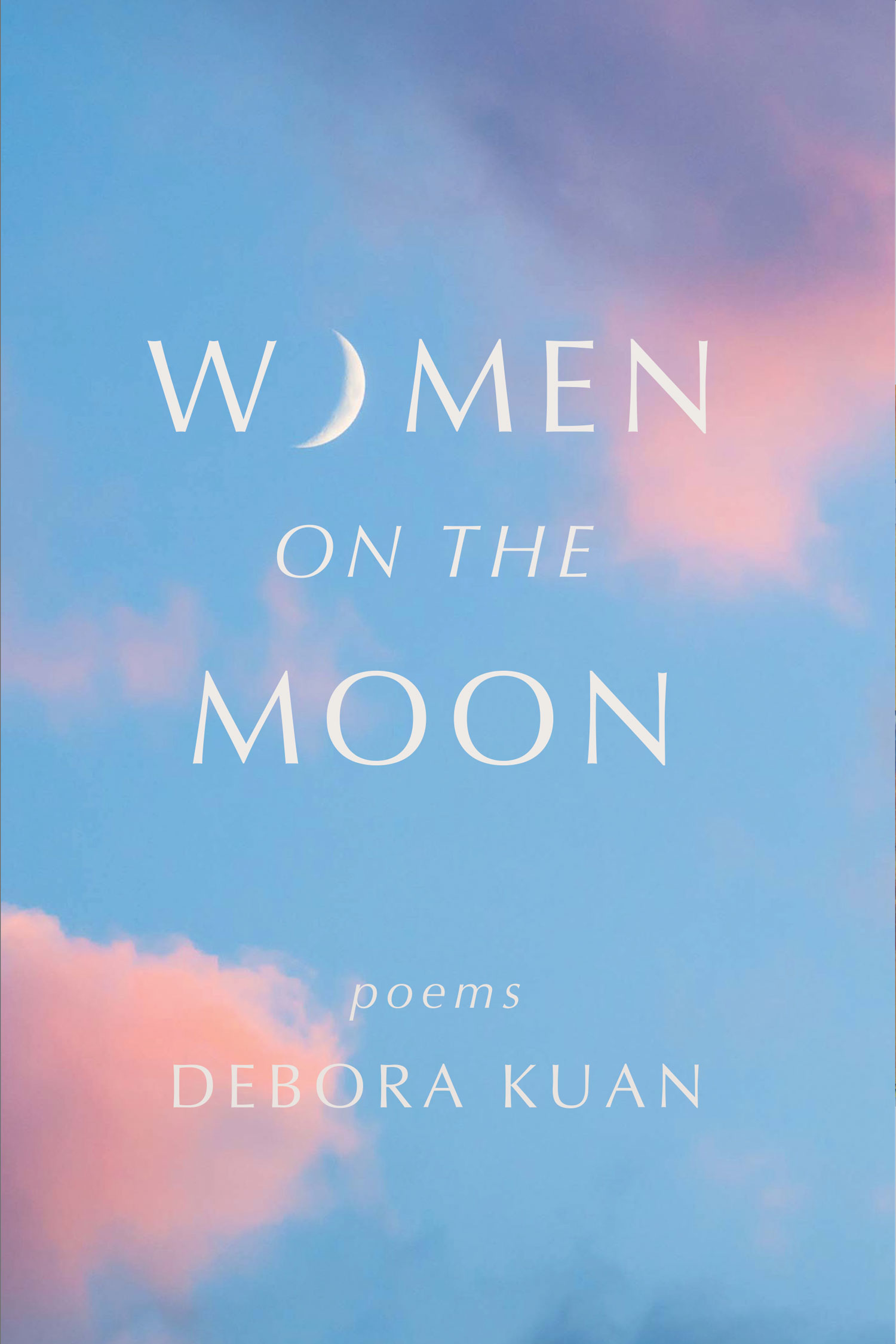Debora Kuan
The Word Works ($19)
by Julia Klahr
In Women on the Moon, Debora Kuan’s vulnerable new poetry collection, the author draws on her Asian-American heritage to explore the gravity rooting a woman’s life in an “imaginary firmament” by invoking the ethereal figure of Chang-e, the Chinese moon goddess. Divided into five “lunar phases” examining the place of women (particularly women of color) in contemporary American society, the book is a refreshing take on modern femininity that finds magic in the banal domesticity of the everyday.
Kuan’s free verse seems to signal the liberty of expansive contemplation, especially in the book’s “Gibbous” section. In recalling the myth of Chang-e’s path to immortality, the author casts a mystical light on her heritage:
Say a woman leaves you for the moon.
Say you discover after turning over the quilted
page, she’s drunken the elixir,
she’s gone—ghost of indented slippers, pulse
thumping beneath your birdless ribcage.
However, Kuan has no less praise for the corporeal, as in the pithy “Magic Lesson”:
. . . every woman
has been sawed in half
at least a dozen times
before sunset.
The book’s opening phase, “Last Quarter Moon: Mothering,” features “Having a Baby at 43,” a poem that portrays the speaker as apprehensive and vulnerable as she grapples with older motherhood. Following recent egregious displays of anti-Asian sentiment, “One Day in America” subtly evokes an Asian American mother’s fears while watching her child:
when you catch sight of me,
you practice your wave, opening and shutting
your fist in the weighted air. Your nose and chin
and eyes are splattered with dark red
berry purée, as you kick your feet
in your highchair.
Here, Kuan tries to make sense of a horror-filled day in which the Asian-American spa workers to whom her book is dedicated were brutally killed. Kuan reinforces the devastating impact through enjambment, using meaningful line breaks to help carry the movement of thought. Her language, however, remains informal, with a natural cadence that makes it readable despite the difficult content.
The book’s next phase, “Full Moon: Coupling,” includes a foray into end-stopped and end-rhymed verse, where the interlaced quatrains of “Man & Wife” emphasize a sense of burdensome mundanity and exhaustion:
By dinner, we tear our bread with both hands,
forget candles, eat straight from the pan.
We ready our sorrys on hooks by the nightstands,
so we can reach them as quick as we can.
Images of married life’s predictability and dull routine, where “the complaints go on dripping, / stalactites in a dolomite cave,” continue in wry poems like “How to Live with Your Husband,” but in the book’s final section, Kuan’s speaker seems to embrace the joy of the ordinary in a series of still lifes. The brief tercets of “Still Life With Mushroom” feature deft use of alliteration (“cloud of cartilage”), internal rhymes (“the unsteady / shed”), and other poetic devices that suggest a sense of order and acceptance, one summarized in the poem’s poignant final lines:
I have married my life
to lowliness, and I want
to cry aloud with happiness.
Kuan deploys cultural icons as varied as Anna May Wong and Freddie Mercury as she contemplates subjects ranging from female invisibility to racial stereotyping, and throughout, her singular lens highlights the inequities of American life. In “The Night After You Lose Your Job,” for instance, Kuan’s characterization of a newly unemployed mother embodies an implicit call for greater recognition of society’s overlooked caregivers.
Lyrical, vulnerable and astute, Women on the Moon is a wide-ranging contemporary ode to womanhood. Shedding light on romance and realism while celebrating the contributions of marginalized women, Kuan’s voice advocates for their honest representation with an acuity that speaks volumes.
Click below to purchase this book through Bookshop and support your local independent bookstore:
Rain Taxi Online Edition Summer 2024 | © Rain Taxi, Inc. 2024

